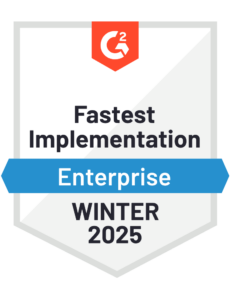CFOs: Are You Prepared to Act as Data Stewards for Your Organization?
Blog post
Share
Much has been said and written about the changing role of CFOs in today’s businesses. Gone are the days of traditional historical financial reporting where the focus is on compiling accurate numbers and sharing with the broader organization. Today’s CFOs are expected to also act as data stewards for the organization. But what does that entail?
What Is Data Stewardship (In Today’s World)?
Data stewardship involves ensuring data is accessible, accurate and secure for use throughout the organization. While most CFOs understand the concept of data stewardship, technological advancements make it increasingly difficult to properly manage it, thanks to disparate tech stacks and growing data security requirements and threats.
As part of data stewardship practices, CFOs and other finance leaders must manage data governance, compliance, and accuracy. They must be prepared to navigate regulatory requirements and manage the massive amounts of data generated in a digital ecosystem while ensuring its accuracy.
According to Gartner, more than 75% of CFOs state they are now responsible for enterprise-wide data and analytics. Similarly, IDC has found that today’s CFO is expected to see upcoming risks and challenges to create accurate forecasts, in much greater detail and at a much higher frequency. It may feel like AI is the answer for every problem today, but AI can’t be properly implemented without strong data stewardship. CFOs have to first make sure that their data is clean and in order before looking to implement artificial intelligence in their finance and accounting practices.
From Data Stewards to Data Storytellers
In today’s world of finance, merely compiling precise numbers is not enough. The CFOs are also expected to act as data storytellers. What is that? Data storytelling is the ability to understand the meaning behind the metrics and communicate why they matter.
CFOs can leverage data storytelling to transform complex financial data into compelling narratives that drive strategic decision-making. By combining data visualization with clear, contextual insights, CFOs can communicate key financial trends, risks, and opportunities to stakeholders in a way that is both engaging and actionable. This approach not only enhances understanding across the organization but also enables leadership teams to make informed decisions based on data-driven insights rather than intuition alone. Whether highlighting cost efficiencies, forecasting revenue growth, or identifying investment opportunities, effective data storytelling empowers CFOs to align financial strategy with broader business objectives, fostering a more agile and informed decision-making process.
Proper data stewardship and powerful data storytelling relies on one key tool: a strong financial management platform.
Why a Financial Close Platform Is Critical for Proper Data Stewardship
For teams lacking a reliable platform for financial reporting, the process of gathering financial data is often so time consuming that the added effort of deriving strategic insights from this data may seem daunting if not completely out of reach.
Financial close platforms empower CFOs to be better data stewards by providing a centralized, automated, and secure environment for managing financial data. These platforms integrate real-time data from multiple sources, ensuring accuracy, consistency, and compliance with regulatory standards. By leveraging advanced analytics, AI-driven insights, and automated workflows, CFOs can minimize errors, reduce manual inefficiencies, and enhance data governance.
Additionally, these solutions enable better collaboration across departments, ensuring that financial data is not only accessible but also meaningful for strategic decision-making. This helps teams quickly and easily identify opportunities and risks, empowering them to make data-driven decisions with minimal disruption to their day-to-day.
Data Stewardship In an Increasingly Complex Landscape
In today’s fast-paced digital landscape, it is becoming increasingly difficult for CFOs to be strong data stewards. Additionally, the role has evolved beyond traditional financial reporting to encompass data storytelling. As organizations generate increasing volumes of financial data, CFOs must ensure their accuracy, security, and strategic value. Many of today’s finance leaders are looking to AI-powered solutions to tame the complexity, but they have to ensure their data is in order first.
According to CFO Dive, 75% of employees are already using AI and 51% of CFOs report they are making investments in AI for their organization. Unfortunately, if the data fed into the AI isn’t clean, the output won’t be either. This leads to skewed data, inaccurate reports, false insights, and without proper oversight, missed business objectives.
CFOs: it starts with you. Are you acting as proper data stewards to drive the financial performance of your organization?
Written By: Lindsay Rose






